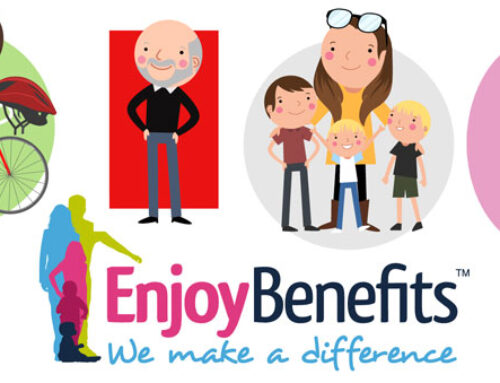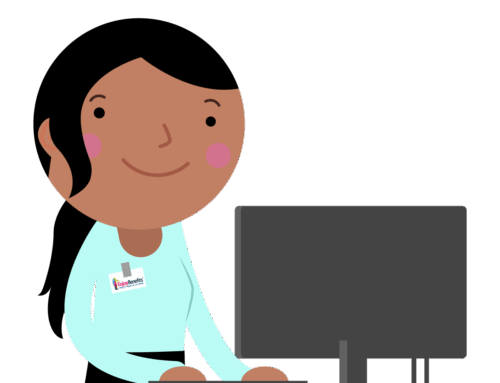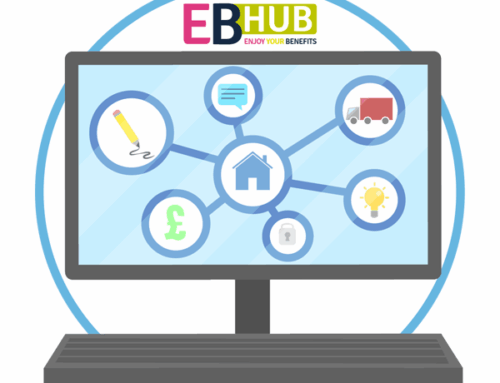Much has been written about the switch to working from home in 2020, an unavoidable consequence of the global Covid-19 pandemic.
In this blog we have covered it and often with a relatively upbeat tone – there are undeniably many employees around the UK who have welcomed the opportunity to work from home more often.
There are many who have wanted to WFH in the past but either faced push back or not even felt able to ask. Many may never go back to working full time in the office, at most going in once or twice a week for catch-ups and meetings.
However, there are other groups for whom working from home has been far harder, it has been a lonely, demotivating experience. Perhaps less has been written about these groups, but they are just as important, and their needs perhaps currently greater.
Chief among this group is often the younger employees and we will briefly discuss the reasons why. More importantly, what can be done to help these people both in terms of their own mental health and also helping to keep them as an angered part of the team.
We will look at the role selective workplace benefits can play. Workplace benefits may not be able to solve the problem, but they can at least do their part in lessening the impact.
Why Younger Employees Are Affected
If we may generalise a little, the younger employees will often be at a stage of their life that makes working from home and staying home less appealing.
Heir finances might also be such that their home may be that bit less suited to staying in for days on end.
Younger employees, especially those only recently out of school, college or university are less likely to be in a long term relationship and far less likely to have children. They are far more likely to be living alone, or perhaps in a house share – often with virtual strangers.
Financially, again as a broad trend, they will be more likely to have a smaller property, often renting a flat for instance. Few in their early 20s will have the four-bedroom family home with garden, room to move around and get a change of scene without ever leaving the house and garden.
Working from home when you have a decent-sized house, garden, partner, children and the dog and cat is going to be very different to working from home in a one-bedroom flat with only a view of other flats and nobody to share with.
In the latter situation, while it can be very pleasant to arrive back to your own space, the office was a point of difference, so too after-work socialising. Going home to an empty flat after being out all day working with colleagues and then socialising is very different from waking up in the flat, working all day, and then going to bed in the same space.
And it is not just younger employees of course. Employees of any age might be living alone, missing out on the social interaction that the workplace brought.
A job that was more than just work can become just the work part, with none of the interaction, conversation or compassion.
The Role of Workplace Benefits
Workplace benefits cannot replicate the interaction of the office, but they can at least help to demonstrate that the employer cares and is taking stapes to make life that bit easier.
They can also look to a better time, when it is possible to be fully back in the office and for more normality to have returned.
To help with current state of mind and any mental health issues, employers should consider the Employee Assistance Programme. This programme is a wonderful system whereby every employee has access to a fully confidential helpline, with experts able to help and advise on virtually any topic.
It can be used for depression, addiction, talking through major life events such as divorce or bereavement, but also happier events such as upcoming marriage.
The service helps with any employee’s state of mind; they know that they can use it and speak in complete confidence, it is not a service that reports back to the employer.
However, the employer does benefit – they are fulfilling a duty of care and it is also usual to find that by using the service employees end up spending less time off work, or they are able to remain productive.
The service helps people to find a way through problems and retain a more positive outlook.
A new benefit is the Health and Wellbeing package, this can be as part of EAP or as a standalone product. Whereas EAP was introduced long before anyone had heard of Covid-19, this new programme is a result of the changes brought about by the pandemic.
It has videos, fact sheets and other resources specifically created with the current situation in mind and so covers issues such as sleep, nutrition, finances, emotional agility and mental health awareness.
Offering this package sends out a very strong message, it shows that you really do appreciate that times are tough and that it is perfectly natural to feel down, for sleep and eating well to be a difficulty.
It is saying there is no need to pretend everything is OK – we’re going to help you.
There are also existing benefits that can help employees think ahead to socialising once more or even give them an opportunity to meet up right now.
One example is the Dining Card – up to 50% off meals at a huge range of UK restaurants with options for every budget. Depending on the current state of restrictions in your area, it may be perfectly possible for employees to meet for a catch-up and enjoy 50% off – or for people to just meet up with friends and family, but save money thanks to the scheme you put in place.
Gym membership would be similar – staying fit has proven mental health benefits, but offering a discounted gym membership scheme also encourages employees to join the same gym and so it becomes a social extension of the office.
There are other benefits that can help too. Please get in touch for an obligation-free conversation.
Getting it Right
At Enjoy Benefits we are experts in workplace benefits – both the benefits themselves and then also working with you to encourage staff to sign up and use benefits that help them and, in so doing, the business too.
We have helped businesses and organisations across all sectors and of all sizes.
If you would like an obligation free chat to discuss which benefits might work for your business and your employees, please contact us by calling 0800 088 7315 or using our Contact Form.





